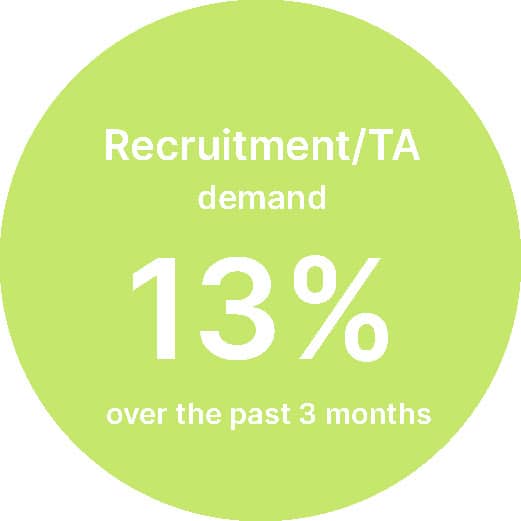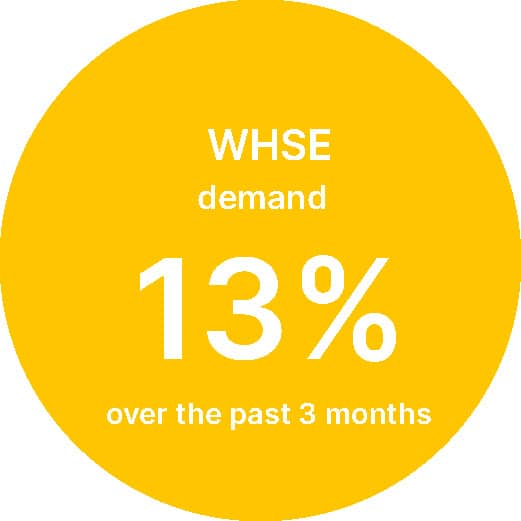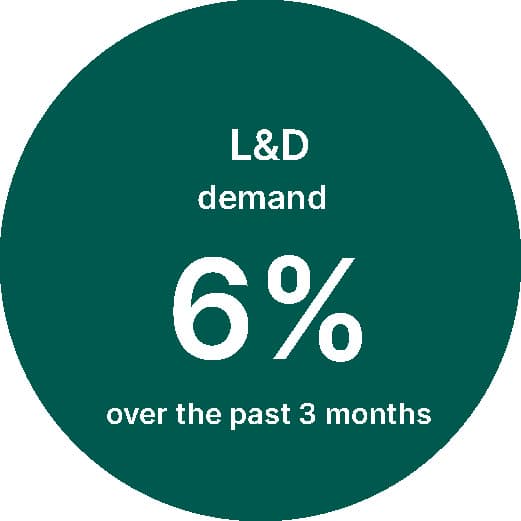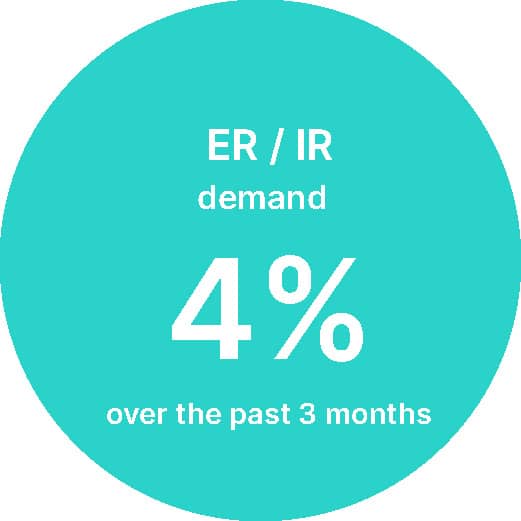Australian HR market insights
January to March 2024

Frazer Jones is pleased to present our insights into the Australian HR market for Q1 2024.
There are currently (April 2024) just over 3,100 HR vacancies on SEEK across Australia which is roughly a 30% decrease on this time last year. Most of the major cities mirror this trend with Melbourne tracking slightly behind Sydney and Brisbane.
In comparison to the same time last year, Sydney has seen a 50% uptick in hiring for employee relations and industrial relations roles. There has been a 40% drop in Talent Acquisition and more demand at the operational level for salaries between $120,00-$150,000. This operational demand is also present in Melbourne who have also seen an uptick at this level. In Brisbane there is also more demand for Employee Relations & Industrial relations and WHSE than this time last year.
We note that State Government is actively hiring in HR and NSW in particular has a high level of vacancies. Payroll remains a very tricky area to attract and retain talent closely followed by HR Business Partners.
Where we are working with clients in growth mode, the growth is more controlled, and conservative compared to 2 years ago. We still see reports in the media of smaller scale redundancies and these are not always purely related to economic or trading conditions. There is no doubt that redundancies are still happening as organisations react and adapt to challenging and changing markets.
HR talent in demand
HR Advisor and HR Business Partner opportunities remain strong. Of the 3000+ job vacancies in HR across Australia, over 90% of these are at the junior to mid-level. More than 1/3rd are generalist roles and most of those are P&C or HR Business Partners requiring strong technical knowledge who can demonstrate sound commercial acumen and stakeholder management skills. This group of talent have options and employers will need to be cognisant of the recruitment process and timing to make sure you are not missing out.
Specialist functions remain in the spotlight. With 2024 bringing another flurry of legislative changes including new wage theft laws, family and domestic violence and gender equality reporting requirements, risk mitigation and compliance remains a key strategic objective for HR leaders.
There has been a spike in demand for Employee Relations and Industrial Relations expertise both at Specialist and Leader levels, as HR Leaders look to strengthen this capability.
The most common job titles are Employee Relations Manager, Employee Relations Specialist and Industrial Relations Manager. With mining, financial services, and government the big employers in this space. We have seen a number of newly created roles and 19% of ER/IR professionals changed jobs in the past 12 months.
Roles in demand





Oversupply in HR talent
As you will deduct from our earlier comments on the demand for entry to mid-level experience, the senior market is slow moving and competition remains tight for those seeking a new role. Cost restricted organisations are reducing headcount at the Director/Executive level while others continue to promote from within and transfer talent cross border. This reduces the amount of opportunity for external hires and slows the natural churn.
Talent Acquisition has been deeply affected in the last 12 months with those recruiting in the technology space impacted the most. Most clients report a drop in demand as turnover has slowed, investments on pause and natural growth slower than previous years. With that said, we still have around 20% of our workload in the TA space so there are roles out there but a huge oversupply of talent.
Candidate sentiment
20% of all HR professionals are open to work on LinkedIn. So, what are they looking for?
Culture, salary and flexibility are the common topics. As soon as an organisation mandates 5 days a week it drives people to consider their options. This directly feeds into the culture conversation and how people want to be valued for the work they deliver rather than the hours they sit at their desk in the office.
From all the conversations we have had in the past 3 months, candidates are flexible on salary if culture and flexibility are present. A large majority would move for the same money if it was the right role.
Offers declined
We have had a great start to the year 2024 with no offers declined in Q1. The average ‘offer decline’ rate in 2023 was 11%, which was a slight increase from 2022 which was at 10%.
Salary expectations
To gain accurate and insightful candidate sentiment, we have robust conversations with our candidates at every level, around salary expectations, and how flexible they will be to secure their ideal next role.


Entry-level trends: a small number of people would take a drop for a role, and they mostly sit in recruitment which is under pressure at the moment. Compared to the end of 2023, more candidates are looking for an increase. Candidates looking for an increase grew by 30% and those who would move like-for-like declined.

Mid-level trends: mid-level roles are still in demand, and a small majority are willing to take a drop for the right role. At the end of 2023 some would have taken up to 40% but this has reduced. The average salary increase expectation is the highest at 9%, which has grown from 0.4%.

Senior level trends: for candidates that are in between jobs in the senior market, there is significant flexibility in salary. For those in a role, 75% are looking for a like-for-like or an increase for a move. Whilst challenging and interesting work is a major factor, there is no doubt that the cost of living comes into play around making the decision on the next career move.
For more details on the Australian HR market or to discuss your company’s hiring program, please contact Frazer Jones Australia for a confidential discussion.





